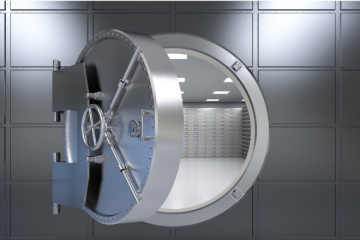The collection of sales taxes and what is subject to sales tax is a complex process that confuses many small business owners. A recent US Supreme Court ruling has added clarity and risk for businesses not understanding their liability. Here is what the recent event could mean to you:
 On June 21, 2018 the US Supreme Court in South Dakota v. Wayfair, Inc. upheld South Dakota sales tax on e-retail. The South Dakota law applies to sellers that deliver tangible person property, electronically transferred products or services greater than $100,000 annually or engage in 200 or more transactions a year. The decision overturned the 1992 Quill, Corp. v. North Dakota that ruled that tax nexus, or the ability to tax due to a connection to a tax jurisdiction, required that seller of goods or services to have physical presence in that taxing state.
On June 21, 2018 the US Supreme Court in South Dakota v. Wayfair, Inc. upheld South Dakota sales tax on e-retail. The South Dakota law applies to sellers that deliver tangible person property, electronically transferred products or services greater than $100,000 annually or engage in 200 or more transactions a year. The decision overturned the 1992 Quill, Corp. v. North Dakota that ruled that tax nexus, or the ability to tax due to a connection to a tax jurisdiction, required that seller of goods or services to have physical presence in that taxing state.
The Court in the recent decision was attempting to level the playing field between in state, brick and mortar, sellers and out of state sellers. In the majority opinion written by Justice Anthony Kennedy, the Supreme Court said times have changed to such a degree that online retailers no longer qualify for “an arbitrary advantage over their competitors who collect state sales taxes” by claiming they don’t have a physical presence in a state. Justice Kennedy continued stating “The internet’s prevalence and power have changed the dynamics of the national economy,”
As stated above remote sellers in South Dakota with $100,000 in taxable sales or 200 separate taxable transactions delivered into South Dakota must collect and remit sales taxes. According to Avalara, a sales tax service provider, website the following states have similar provisions as South Dakota. These include: AL, CT, GA, HI, IA, IL, IN, KY, LA, MA, ME, MS, ND, OH, PA, RI, TN, VT, WA, and WY. Each has different statutory start dates, as early as 2018, and sales/transactions requirements that trigger nexus, so you may have tax exposure even if you don’t have any customers in South Dakota.
The provisions of the South Dakota allow for the taxing of electronically transmitted goods and services. SaaS, Software as a Solution companies, may be required to comply with some states statutes. The complexity of the local sales tax regulations now come into play if you have customers in any of the states listed above.
So, what do you do? We recommend that all companies that have out of state sales that are currently not charging tax to their customer should consult with a sales tax expert to determine when the company is obligated to tax under the state statute considering the Wayfair decision. As noted above some states have statutes that could be applicable for 2018 transactions.
Want to find out your business baseline? We offer a free financial stress analysis with no strings attached. Just call us or send an email.


